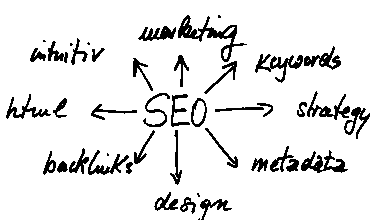The Future of Lead Generation in Data-Driven Marketing
In the rapidly evolving world of data-driven marketing, predictive lead generation has become a crucial aspect for businesses to enhance their sales strategies. Companies increasingly recognize the significance of utilizing analytics and data insights to identify potential leads effectively. By harnessing advanced technologies like artificial intelligence and machine learning, organizations can analyze historical data and spot patterns that indicate high-value prospects. This proactive approach allows marketers to engage leads at optimal moments in their buying journey, potentially increasing conversion rates. Moreover, predictive tools can help prioritize leads based on their likelihood to convert, allowing for more efficient allocation of resources. Utilizing these insights leads to stronger customer relationships by providing tailored content and solutions based on emerging preferences. As firms continue to adopt data-driven methodologies, predictive lead generation will play an essential role in keeping them competitive. By integrating predictive methods into their marketing strategies, organizations can create more personalized experiences that resonate with leads, ultimately ensuring higher satisfaction rates. This results in a more dynamic interaction between brands and consumers, streamlining the conversion process while generating valuable insights that inform future marketing tactics.
Traditionally, lead generation involved broad outreach through channels like email campaigns and social media advertising. However, the landscape has shifted dramatically. With the help of data analytics, marketers can now generate leads through highly targeted strategies. This transformation is largely driven by the understanding of customer behavior, preferences, and demographics. Using predictive analytics, businesses can foresee potential buyer actions and tailor their marketing accordingly. Techniques such as customer segmentation further enhance the accuracy of targeting efforts, allowing for customized messaging that speaks directly to specific groups. Additionally, leveraging customer relationship management (CRM) software equips marketers with crucial insights regarding lead interactions. These insights grant marketing teams the ability to refine their methods continuously, ensuring that engagement strategies remain impactful. As companies grow more adept at using data, it empowers them to curate marketing efforts that adapt in real-time. Such adaptability is essential in today’s fast-paced market, guaranteeing that businesses not only meet but exceed customer expectations. Consequently, a shift occurs where lead generation transforms from a volume-based endeavor into a precise art reliant on data-driven strategies that yield effective results.
Another critical component in predictive lead generation is the ongoing refinement of data models. By consistently tracking performance metrics and evaluating the success of lead generation practices, marketers can fine-tune their strategies. This dynamic approach permits continual improvement and strengthens forecasting accuracy. Advanced analytical tools facilitate real-time data collection, enabling businesses to monitor leads’ actions in direct response to marketing initiatives. As preferences shift among potential customers, companies equipped with robust data-driven insights can pivot and adapt accordingly. This proactive posture contributes to the establishment of a solid competitive advantage. Moreover, companies focusing on the customer experience can implement strategies that harness emotionally driven narratives to strengthen their brand connection. The emotional appeal in storytelling combined with predictive analytics can greatly enhance engagement rates, as brands resonate on a more substantial level with their target audience. Such duality in understanding both quantitative data and emotional factors highlights the potential for predictive lead generation to redefine marketing methodologies, resulting in frameworks that cultivate long-lasting customer loyalty and promote sustained business growth.
Leveraging Social Media for Lead Generation
Social media platforms have emerged as vital tools for predictive lead generation, primarily due to their vast user base and accessibility. Marketers can delve into the preferences of potential leads and leverage this information to craft tailored content. The intersection of data analytics and social media can lead to enhanced targeting strategies. By analyzing interactions, comments, and shares, businesses can determine how to position their product or service effectively. Social media also presents valuable opportunities for A/B testing different marketing messages to gauge their impact on leads. Engaging with users who express interest can build strong relationships and foster trust within the brand community. Subsequently, the use of data-driven insights obtained from social media engagements can inform future strategies. By employing machine learning algorithms, marketers can predict trends and shifts in consumer behavior, allowing for timely interventions. Enhanced social media strategies can be complemented by personalized campaigns delivered directly to users. The integration of predictive analytics within social media marketing represents a vital opportunity for businesses to expand their reach and create meaningful connections with potential customers in the digital landscape.
Another factor to consider in predictive lead generation is the importance of content marketing. Quality and relevant content can significantly influence lead generation, as informative resources attract potential leads. By understanding audience pain points and preferences, businesses can create content that resonates with them. This strategy enhances engagement and builds trust, ultimately encouraging leads to consider a purchase. Data analytics can help determine which types of content perform best, allowing businesses to refine their content strategies based on measurable results. Additionally, optimizing content for search engines ensures that the right audiences discover valuable resources in their search for solutions. Offering insights through webinars, e-books, and white papers positions businesses as thought leaders in their respective industries. As prospects recognize the value in such contributions, they are more likely to engage with brands genuinely. Consequently, strong content performance leads to improved lead generation outcomes through trust-building and positioning the brand as a reliable source of information. Hence, content marketing, driven by data analytics and audience understanding, plays an instrumental role in shaping successful lead generation strategies.
Further emphasizing the role of data in predictive lead generation is the impact of artificial intelligence and machine learning. These technologies enable marketers to process vast amounts of data, identifying patterns and trends that might not be visible through traditional analyses. By integrating AI, businesses can enhance their understanding of customer behaviors, allowing for more effective targeting of future leads. Predictive analytics powered by AI can reveal insights about customer lifecycle stages, allowing marketers to target prospects with precision. Moreover, automating certain repetitive tasks frees up marketing teams to focus on creative strategies that can outperform competitors. Real-time insights derived from AI tools allow for adaptive marketing approaches that can change based on evolving customer preferences. Subsequently, businesses can stay ahead of the curve by tapping into these intelligent systems, ensuring their marketing strategies remain relevant. As AI technology continues to grow, predictive lead generation will evolve and become even more sophisticated. This increasingly automated approach fosters an efficient workflow for businesses, empowering them to make data-backed decisions with greater agility and insight.
The Importance of Continuous Learning and Adaptation
The future of predictive lead generation hinges on the capability to learn continuously and adapt to changes in the market. As the marketing landscape becomes more competitive, firms must be proactive in refining their strategies. Regularly assessing and analyzing data not only ensures alignment with customer needs but also uncovers opportunities for innovation. By incorporating customer feedback mechanisms, businesses can adapt their approaches in real-time. Additionally, fostering a culture of continuous learning within marketing teams helps drive creativity and innovation. Emphasizing training on the latest technologies and data analysis techniques can optimize the effectiveness of marketing endeavors. This commitment to learning promotes a deeper understanding of evolving trends and shifts in consumer behaviors, ensuring strategies remain relevant. With a flexible mindset, organizations can pivot rapidly in response to market dynamics, gaining a critical advantage as a data-driven powerhouse. By embracing experimentation and agile methodologies, leads can be effectively nurtured throughout their journey. This forward-thinking approach allows predictive lead generation to continue evolving, steering brands toward current business goals while building long-lasting connections with clients.
In summary, predictive lead generation signifies a fundamental shift in data-driven marketing strategies. By integrating advanced technologies like AI and harnessing the power of data analytics, businesses can refine their approach to identifying and engaging potential leads. As marketers leverage insights gained through data assessment, their ability to predict buyer behavior continues to enhance. Companies that prioritize building emotional connections with customers, supported by precise targeting, develop stronger brand loyalty. Moreover, marketers can harness social media and content marketing tools to effectively attract leads and foster interactions. Continuous adaptation and learning remain imperative for businesses striving to thrive in the competitive landscape of predictive lead generation. By creating dynamic marketing frameworks reliant on data insights, companies can ensure sustained growth and customer satisfaction in an ever-evolving environment. As lead generation evolves, embracing these data-driven techniques positions businesses to navigate the challenges ahead. The result is a more efficient, effective marketing approach capable of capturing high-value prospects while cultivating meaningful relationships. In the long run, organizations that harness the future of predictive lead generation will not only meet but exceed the diverse needs of their customers in a data-driven marketing ecosystem.


